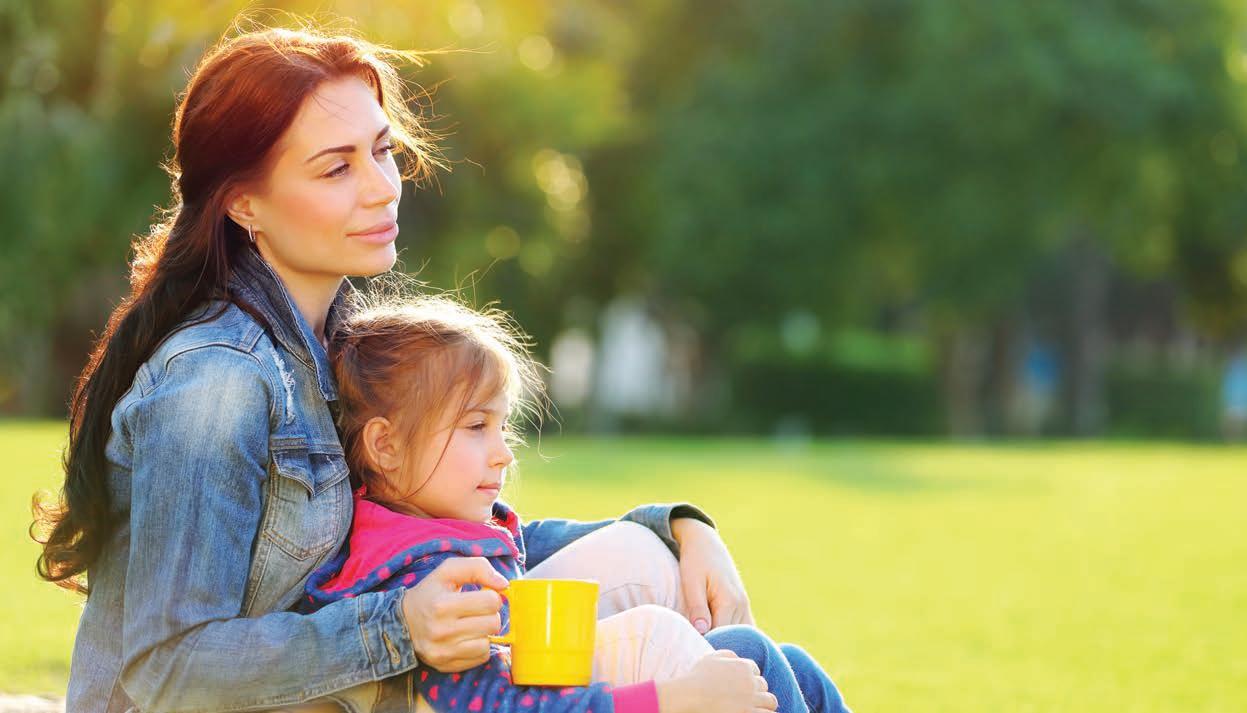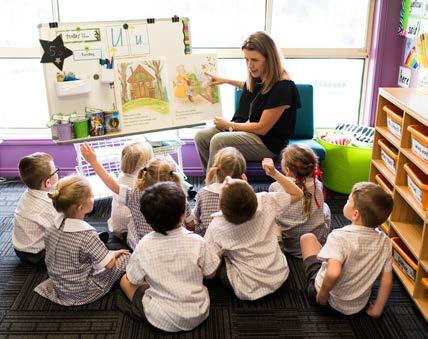
4 minute read
Why empathy matters
Why empathy matters BY ADRIENNE GARSIDE
Some years ago, a friend’s young son received a merit award at his school’s weekly assembly. He was recognised not because he topped the class in a maths test or ran first in a race, but because he was kind and inclusive towards others. I have since heard of other Central Coast primary schools highlighting positive personal qualities rather than solely rewarding ranked achievements.
Some observers have expressed concern that nurturing ‘soft’ interpersonal skills like kindness and empathy leaves young people unprepared for the sometimes harsh realities of modern life. Showing empathy is sometimes equated with weakness – particularly when it is displayed by boys and young men. Yet the ability to recognise and respect different perspectives is strongly linked to better outcomes in the classroom, at home and in the workplace. It is a vital part of forming healthy relationships of all kinds. To look at it from a different angle, an inability (or unwillingness) to empathise can enable cruelty, exclusion and violent behaviour within homes, schools and the broader community. We tend to think of empathy as ‘walking in another person’s shoes’ to understand their feelings and experiences. Being able to consider the needs and motivations of other people is a fundamental part of emotional development. Though it may seem innate to some children, empathy is largely a learned behaviour. It is an invaluable life skill that can be strengthened with regular practise.
Practise what you preach Children take most of their cues about how to treat people from parents and other caregivers. One of the most powerful ways to teach a child empathy is through your own interactions with them. There are many ways to do this, including: Providing a home environment that fosters empathy via open communication, emotional support and consistent expectations regarding behaviour Making a ha bit of speaking well of others in front of children, particularly those they love and respect Verbally acknowledging situations when they display kindness towards others Speaking respectfully to and about people who look, communicate or behave differently to you and encouraging your child to do the same Expressing gratitude and offering compliments freely – demonstrate that generosity is not just about money
Expand your child’s horizons A key aspect of empathy is being able to approach people and situations with an open mind. There are many ways to nurture this habit in children. Make diversity normal: Share stories involving people of different cultural, social and economic backgrounds – this encourages children to empathise with people outside their ‘tribe’ who have different experiences, abilities and values. Your child will likely discover they have things in common with a wide range of people.
Embrace feelings: Help your child to identify their own feelings and let them express themselves without jumping in with advice or judgement. It is important and healthy to let children experience the full range of human emotions, including the ones commonly seen as ‘negative’, like anger, sadness and disappointment. Encourage reflection: Verbally encourage your child to imagine other
perspectives. Asking questions can help children understand the impact of their actions on other people. (For example, ‘How do you think James felt when you called him a nasty name?’) Discussing current events can help older children discover the world beyond their doorstep – and provide concrete examples of people displaying empathy (or not). Lend a hand: Provide opportunities for your child to help other people inside and outside the home. Taking on a project or volunteering together can strengthen family bonds and instil a sense of collective responsibility. It is never too early to introduce one of life’s most important lessons – we’re all in this together.

Adrienne Garside works for Iris Foundation, a charity that aims to reduce the risk of suicide on the Central Coast. The Foundation achieves this by facilitating and supporting awareness campaigns, programs and partnerships which enhance community connectedness and well-being. For more information, please visit: www.irisfoundation.org.au.
Online Relationship Course for Couples
Created by Sarah Tolmie, marriage therapist, love & relationships coach and holistic celebrant
Creating a Miracle Marriage
In these challenging times, it is now more important than ever to strengthen and care-take our relationships. This course is perfect for couples beginning marriage – why not start as you want to continue and grow AND it is fantastic for couples already married who may be feeling the strain and challenge and beginnings of disconnect.
*Offer Valid until 30th June 2020 70% DISCOUNT

• 5 x Relationship Training Modules & worksheets • 10 x M iracle Marriage Toolkit Tutorials Plus bonus videos and recordings.
Creating a Miracle Marriage Online Course for Couples
Creating a Miracle Marriage can be the breakthrough and reset needed to get a couple back in the flow of life and love together.








